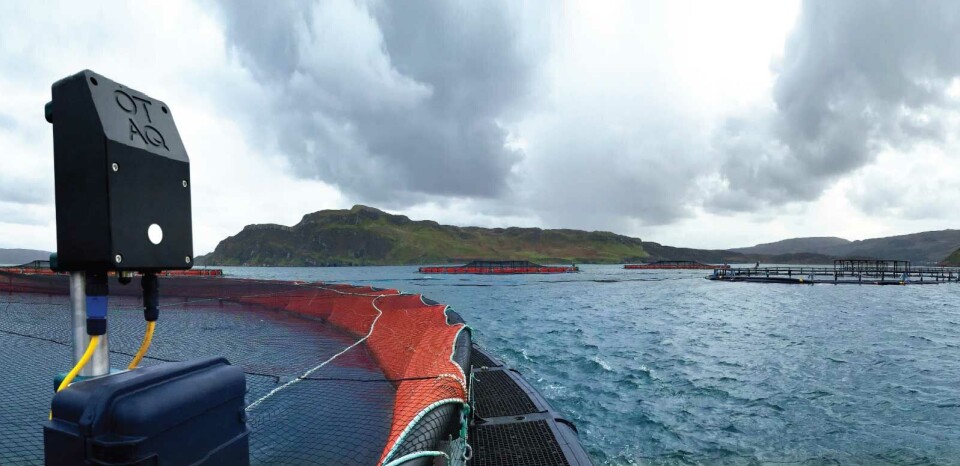
OTAQ bids to net £1.5m with stock market listing
Salmon farming technology supplier OTAQ is to become a publicly listed company on the London Stock Exchange to finance growth and develop new products.
The company’s products include an acoustic predator deterrent used by fish farmers in Scotland, Chile, Finland and Russia.
OTAQ is also part of a consortium developing an early-warning detection system for potentially dangerous plankton and algae.
In a press release about the market listing, OTAQ stressed that there will be no change to its executive management team or its operations.
Rapid progress
Chief executive Phil Newby said: “We are excited by the opportunity to develop our operations and our offering to customers and build on the rapid progress made to date.
“Once completed, the listing and additional capital will help us take advantage of growth opportunities and accelerate the development of new products as we focus on strengthening our position in the aquaculture marketplace.”
The listing, which is subject to shareholder approval, will raise around £1.5 million before expenses for the company.
Low-cost algae sensor
OTAQ’s work on the plankton and algae detection system also involves the Iain Fraser Cytometry Centre (IFCC) at the University of Aberdeen, the Scottish Aquaculture Innovation Centre (SAIC), and CENSIS (the Innovation Centre for sensor and imaging systems and Internet of Things technologies).
The consortium is creating a low-cost sensor system that can automatically sample, identify, and count specific microscopic organisms using imaging analysis.
As well as supplying the aquaculture industry, OTAQ also develops marine technology products and solutions for the offshore oil and gas industries.
It has 36 employees spread over four locations: Lancaster, Aberdeen and Ulverston in the UK, and Puerto Montt in Chile.

Pellet detection
Speaking to Fish Farming Expert after exhibiting at the Aqua Nor trade show in Trondheim last August, commercial director Chris Hyde there had been enormous interest, particularly from Chileans and Australians, in OTAQ’s SealFence predator deterrent, and interest from across the world in both its plankton detection and a video-based biomass and pellet detection system.
“They were both demonstrations, and not yet available,” Hyde said at the time. “We hope to launch both within the next year.”























































